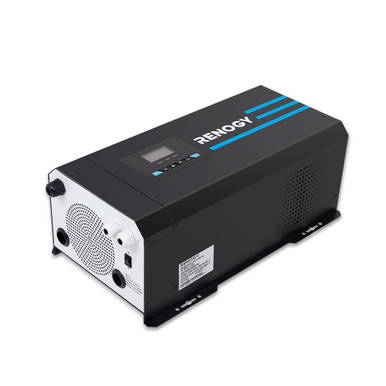So I was somewhat on the right track, the Renogy 3000 Inverter / charger is the unit I was looking at:
Renogy 3000W pure sine wave inverter charger not only acts as a DC to AC converter but also charge and maintain a battery bank. Compatible with various batteries.

ca.renogy.com
That being said, this is a 3000W unit, I couldn't tell if this unit is low or high frequency (how can you tell?). According to SmoothJoe I'd be pushing it at 12V.
What you're saying is my batteries may not support being joined serially. This is news to me as I am used to "dumb" led acid batteries. I purchased the batteries on Amazon:
https://www.amazon.ca/gp/product/B08KZQBMSL/ref=ppx_yo_dt_b_asin_title_o01_s00?ie=UTF8&psc=1
There is limited information on the capability...
As far as the batteries running down, I was more worried about the opposite effect. There is plenty of sun here, so can the batteries get damaged if they're constantly being charged and full or is a good mppt controller completely mitigating that aspect. Otherwise, I can put them on a maintainer over the winter for storage while not connected to the solar system.




